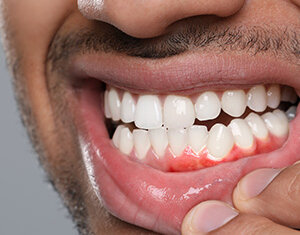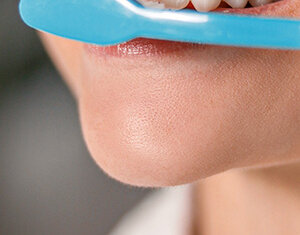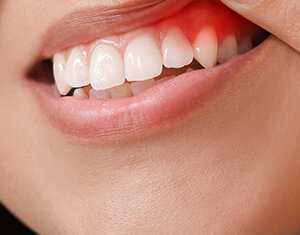Blog
12 Effective Toothache Home Remedies That Actually Works
Oral Care

Toothaches can be excruciating, causing discomfort and disrupting daily activities. While it's essential to consult a dentist for proper diagnosis and treatment, there are several home remedies for tooth pain that can provide temporary relief. From centuries-old traditions to scientifically backed options, here are 12 effective toothache home remedies that have stood the test of time.
1. Clove Oil
Utilise the analgesic and anti-inflammatory properties of clove oil for toothache relief. Apply a small quantity with a cotton ball for effective results. Clove oil contains eugenol, which numbs pain by acting as a mild anaesthetic.
2. Onions
Onions contain antimicrobial properties that can help combat bacteria-causing toothaches. Chewing a piece of raw onion near the affected tooth or placing a slice on the area for a few minutes may alleviate pain. However, this remedy is best suited for those comfortable with the pungent taste and smell.
3. Alcohol
Alcohol, particularly whiskey or brandy, can act as a temporary pain reliever due to its numbing effect. Swish a small amount of alcohol around the painful area for a brief period. Remember that excessive use may lead to drying of the oral tissues, so moderation is key.
4. Asafetida
Asafetida, a resin with anti-inflammatory properties, can be mixed with lemon juice to create a paste. Applying this paste to the affected tooth may help reduce pain and inflammation. Asafetida's medicinal properties have made it a staple in traditional medicine for various ailments.
5. Garlic
Harnessing its natural antimicrobial qualities, garlic serves as a toothache remedy. Create a paste by crushing a garlic clove and mixing it with a small teaspoon of salt. Apply the mixture to the affected area. Use caution when using this medication, as it may induce a burning feeling.
6. Peppermint
Peppermint has numbing and soothing properties, which can provide relief from toothache discomfort. You can apply peppermint oil directly to the affected area or brew a strong peppermint tea, allowing it to cool before using it as a mouthwash.
7. Cucumber
Cold cucumber slices can be placed on the affected side of the mouth to reduce inflammation and numb the area. Additionally, cucumber's high water content helps maintain oral hydration. This remedy offers a refreshing and natural way to ease toothache symptoms.
8. Sea Salt
A warm salt water rinse is a classic remedy for toothaches. As a mouthwash, combining a teaspoon of sea salt with a glass of warm water will help kill bacteria and reduce irritation. Dentists frequently advise patients to use this easy and affordable remedy for oral care.
9. Vanilla Extract
Vanilla extract contains alcohol, which can provide a numbing effect similar to other alcohol-based toothache remedies. Dabbing a small amount of vanilla extract on a cotton ball and applying it to the affected area may help alleviate toothache discomfort.
10. Turmeric Paste
Form a paste with turmeric powder and water, then directly apply it to the affected tooth for potential pain and inflammation reduction, courtesy of turmeric's active compound, curcumin.
11. Ginger Tea
Ginger has natural anti-inflammatory properties that can aid in reducing toothache pain. Prepare a warm cup of ginger tea and allow it to cool before using it as a mouthwash. Swishing the tea around the mouth can provide relief and promote oral health.
12. Guava Leaves
Guava leaves have anti-inflammatory and analgesic properties. Chew on fresh guava leaves or prepare a decoction by boiling the leaves in water. Gargle with the cooled guava leaf solution to help alleviate toothache symptoms.
In conclusion
Dabur Red Paste is a revolutionary dental care solution infused with the power of 13 Ayurvedic herbs. Crafted to combat dental issues, this paste harnesses the potency of ingredients like Clove oil, Camphor, Laung Pudina, and Tomar. With a formidable blend of natural elements, it not only fights against bacteria, fungi, and viruses but also promotes overall oral health.
Dabur Red Paste goes beyond conventional toothpaste, offering a holistic approach deeply rooted in Ayurveda to ensure a refreshing and effective dental care experience.
FAQs
1. Can clove oil be directly applied to the affected tooth?
Yes, apply a small amount with a cotton ball for natural pain relief.
2. How does alcohol help in toothache relief?
Alcohol's numbing effect provides temporary relief; swish in moderation.
3. Is sea salt rinse safe for daily use?
Yes, a warm saltwater rinse can be used daily for oral care.
4. Is vanilla counted under effective remedies for tooth pain?
Yes, applying vanilla to the affected area can prove to be an effective remedy.
5. How often should turmeric paste be applied?
Apply turmeric paste as needed for its anti-inflammatory benefits.
6. Can ginger tea be used as a mouthwash daily?
Yes, swish ginger tea for its anti-inflammatory properties and oral health benefits.
7. Are there any side effects of using guava leaves for toothache?
No, chewing fresh guava leaves or gargling with a decoction is generally safe for toothache relief.
Disclaimer: The contents of this article are for informational purposes only and not a substitute for medical advice.























